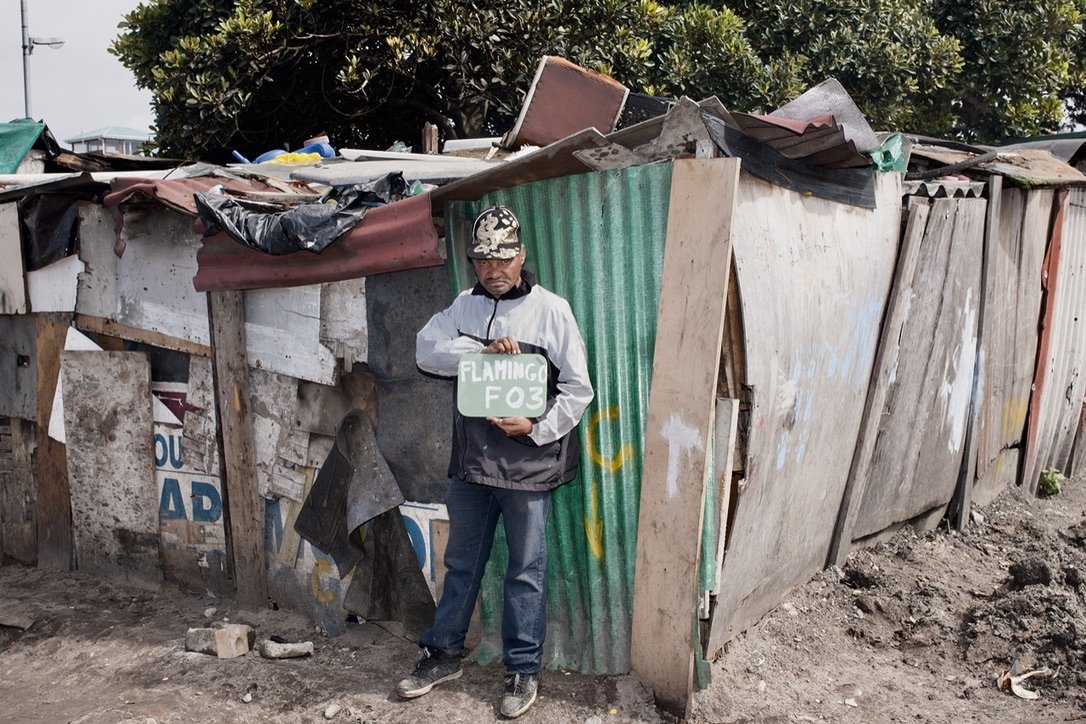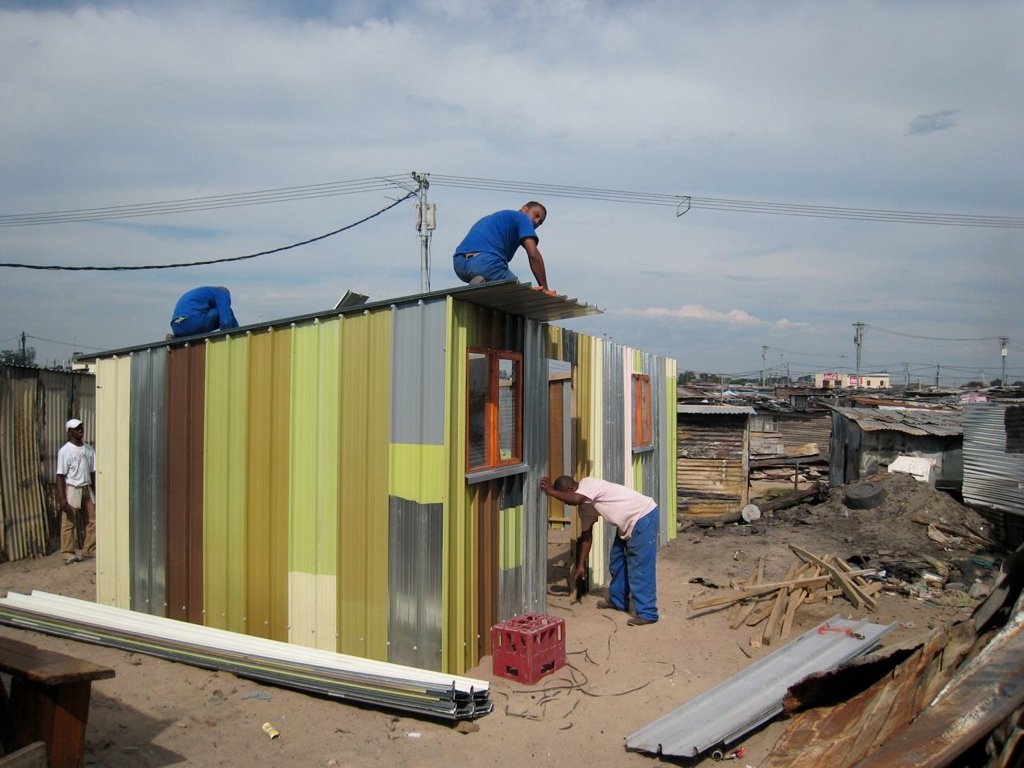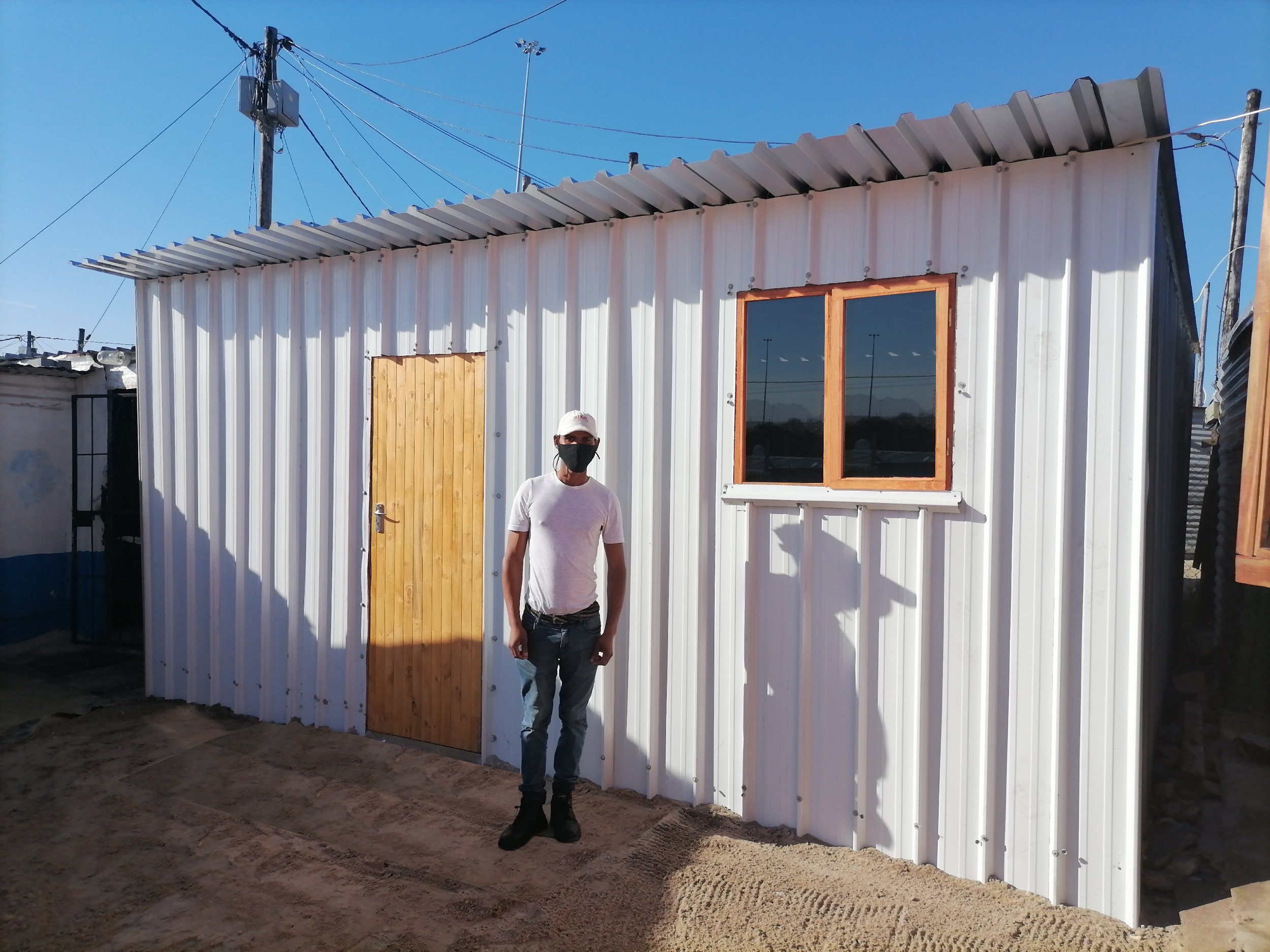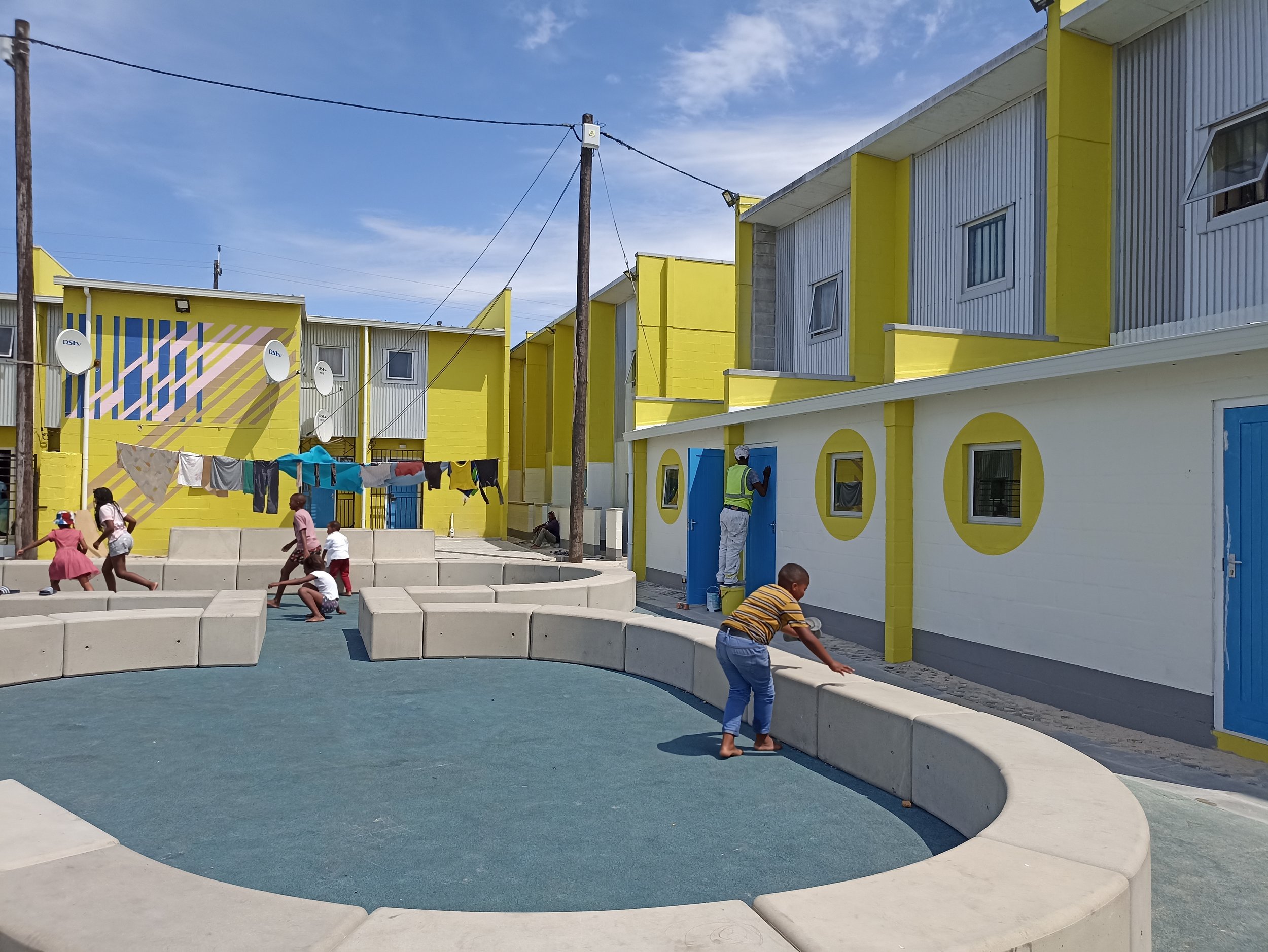“Creativity is thinking up new things. Innovation is doing new things”
Ikhayalami has had a long history of innovating in the urban sector - either through doing new things or doing old things differently. Here are some of the areas where have we sought to create meaningful change.
“Creativity Begins at Home”
Community Re-blocking
Here our innovation was to place active citizens at the centre of the process. Then along came the State and institutionalised re-blocking as ‘super-blocking” but substituting people-centred processes with techno-consultants. Talk about throwing out the baby with the bath water.
Upgrading Shacks
This is, after all, what poor households do themselves. They improve their dwellings incrementally - as resources and opportunities allow. We have said it all along “rather an improved shack now than wait more than ten years for a formal house that may never materialise”.
Appropriate Technologies
There is a lot of fuss about about alternative technologies. As a general rule the most prevalent technology by a considerable distance, namely zinc sheeting. is rejected out of hand. We do not have to start from scratch. It makes sense to start by innovating and improving what already exists..
Converting Informal to Formal
In most cases formalisation involves the demolition of shacks and the building of brick and mortar structures instead. There are other options - including the formalisation of informal technologies and typologies, with structured technical interventions by professionals whose job it is to take their brief from informed and active citizens.
AND INTRODUCING OUR BOLD NEW INNOVATION: THE “PERCOLATE UP” APPROACH TO SHELTER FINANCE - TURNING SHACKS INTO INCOME GENERATING ASSETS.




Since our inception in 2005 iKhayalami’s focus has been on the provision of housing as a social right and not as an economic asset. We operated on the basis of a widely held understanding (with which we still agree) that an acceptable standard of housing and basic services is a necessary condition for full and wholesome citizenship. But we have never believed that a state with finite resources and limited capacities was going to deliver this to all its citizens. It is not enough to have good laws. You need good civil servants and active citizens. At the moment we are short of both.
We have always tried to play our part by filling this gap wherever we can. Over the years we have built thousands of improved shacks and enabled many women and their families to incrementally improve and formalize these homes. We have seen, time and again, how affordable, incremental improvements to home environments make a dramatic improvement in the lives of those who live in them. At the very same time though we have noticed that while improved shacks and low-cost houses can reduce the cost of poverty they do not necessarily improve household incomes. Often poor families can barely afford to hold on to the improved and formalized houses that they have struggled to secure. They simply do not have enough income to cover the increased costs of maintenance, rates and services.
The Covid 19 pandemic and the attendant lockdowns have had a devastating affect on the livelihoods of poor households. This forced iKhayalami management to think out of the box and rework its methodology of delivering improved shacks as social goods only. A house, even an improved shack, can also be an asset. Such a step cannot be taken without addressing the limited availablity of finance for such projects. Our latest, most challenging innovation has been to find ways to bridge this finance gap. With the help of one of our partners (The Mensch Network) we have established a revolving fund which can be accessed by low income households living in shacks to be used for iKhayalami upgrades to their existing dwellings. We are now poised to launch a new financial product which will enable such households, whose tenure is secure but do not have title deeds (most shack dwellers,) to borrow to build additional rooms or units for rental purposes. A part of the monthly rental income is repaid to iKhayalami until the loan is repaid while from day one a portion goes to supplementing household income.
In addition to making contributions to our revolving fund, people who have means are able to stand surety for shack-dwellers who take iKhayalami loans. This results in resources flowing from better off households to very poor households, not through coercion or through statute but through compacts that turn social relations into mechanisms of mutual accountability and reward.





